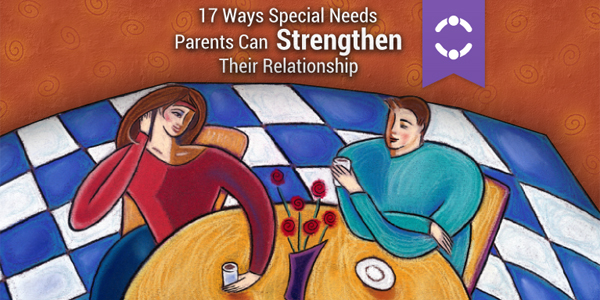
Parenting
17 Ways Special Needs Parents Can Strengthen Their Relationship
Love is in the air this week, but when you’re the parent of a child – or adult – with special needs, keeping a relationship strong can be difficult at times. Having a child with a disability or chronic illness can put a significant strain on your partnership.
The following tips have been sent in to Scope by parents and carers of people with special needs. If you are caring for a child with special needs, we hope some of these suggestions may help you survive the challenges.


